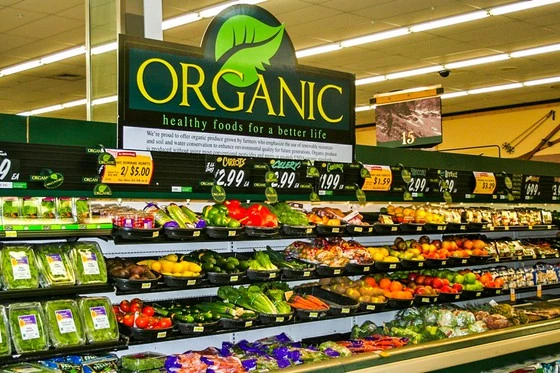
This is an ambitious goal and needs many policies on organic agriculture, and these policies must reach related businesses and farmers.
Businesses unaware of Decree 109
In September 2018, the Government issued Decree 109/2018/ND-CP on organic agriculture, including many policies which would support small businesses, cooperatives, farms, households and groups of households producing organic products.
Accordingly, the Government would provide 100% of funding for regions and areas that would be suitable for organic production. The Government would also support 100% of one-off cost for certification of products conforming to Vietnamese standards on organic agriculture that would be issued by the certification organization, provide training support, organic production training, and other support norms.
In addition, the Government would support the development and replication of organic production models according to Vietnamese standards. It would lend support for pest resistant varieties; organic fertilizers; biological plant protection drugs for cultivation models; expense for breeding, organic feeds and veterinary drugs permissible in husbandry models; also support aquaculture and replication of models.
When the decree was issued, many experts thought that this decree would provide motivation for the development of organic agriculture in Vietnam. But many businesses have not even heard about this decree after one year.
Talking with Saigon Investment, Ms. Tran Ngoc Diep, manager of Happy Vegi, an organic vegetable brand of Huong Dat Service Trading Production Co., Ltd, said she had not heard about Decree 109. During the seven years of growing organic vegetables, the company has had to fend for itself, and did not know of any organization that could lend support when faced with difficulties.
Similarly, Mr. Nguyen Van Tien, owner of Organic Agriculture Tien Tien Farm, said that he did organic farming because of his passion and has not received any support from the central government or the local government for his project yet.
While information about Decree 109 has not reached many businesses, Vietnam's organic standards have also not gained the trust of either producers or consumers.
Ms. Pham Phuong Thao, Director of Organica Joint Stock Company, which was the first organic vegetable farm in Vietnam, received the organic certification from the United States Department of Agriculture (USDA) and EU Organic farming.
She said, “since receiving the organic certification from the US and the EU in 2015, we have evaluated yearly and have maintained the certification until now. Organica is consistently following its original goal of making efforts to provide internationally certified organic food products to consumers. Therefore, we will continue to hold these standards in the future, and do not intend to switch to organic certification of Vietnam. Because the guidelines for this organic standard are still unclear, especially on the issues of monitoring and certification management”.
Organic agriculture planning still fragmented
The total area for organic agriculture in the world is about 100 million hectares, including in protected reserves. Area wise, Australia accounts for 50%, Europe 21%, South America 11%, Asia 9%, North America 5% and Africa 3%. Calculating all arable land on earth, the area for organic agriculture accounts for only 1.4% in total, which is a very small land area.
Australia is the largest organic farming area in the world with over 35 million hectares, followed by Argentina with 3.4 million hectares, China with 3 million hectares, Spain with 2.1 million hectares, and the US with 2 million hectares. Vietnam's organic farming area is estimated at 60,000-70,000 hectares, ranking 58th in the world. In Southeast Asia, Vietnam's organic agricultural land area is ranked after Thailand, Indonesia and the Philippines.
“Even if the top 15 countries in the world do not increase their area in the next 11 years, to reach the grade of top 15 countries in the world, Vietnam will have to increase its area 10 times from now to 2030. This is a huge challenge for Vietnam to achieve. Besides, will Vietnam ensure the production of organic products for the world needs with high quality and competitive prices?”, asks Ms. Pham Phuong Thao.
Many businesses say that farmers cannot follow the model of organic agriculture on their own, particularly because of high capital investment and slow profits. Strict soil improvement criteria and tough farming procedures also serve to discourage farmers.
Mr. Nguyen Lam Vien, General Director of Vinamit, who has chosen the organic path for several years, shared, “the Mekong Delta with alluvial sediments of the Mekong River will suit organic farming, and Vietnam can have surplus organic products and also export to ASEAN and many countries around the world. I still dream that this is possible, and have told leaders in the Mekong region. But whether this dream can be achieved depends on interested groups. The trend of switching from agro-chemical to bio-agronomic is the right way and Vietnam must try to adopt this path”.




















